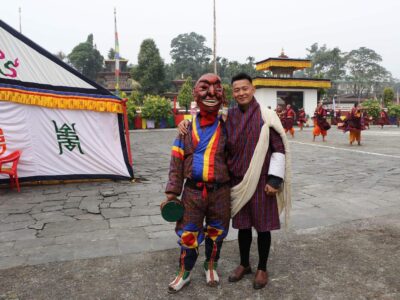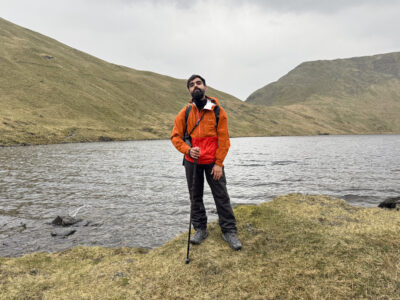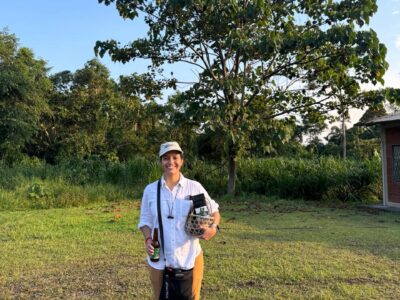Andrew Freedman came to the Earth Institute in order to gain valuable skills for his current career as a climate journalist. Freedman says, “I plan to work at the intersection of science and policy, either in a policymaking role or as a journalist covering sustainable development issues. I hope to contribute to solving some of the communications gaps that remain between policymakers, scientists and the public when it comes to climate change and sustainable development. The M.A. Program in Climate and Society at Columbia has been instrumental in equipping me with necessary analytical skills to act in a variety of future roles in journalism, government or the nonprofit communities.” Freedman comes to the M.A. program with a B.A. in political science from Tufts University, where is also pursuing an M.A. in law and diplomacy, along with his degree from Columbia.
The M.A. Program in Climate and Society, housed in the Department of Earth and Environmental Sciences at Columbia University, is a unique 12-month interdisciplinary master’s program that offers its students the opportunity to learn about climate science and policy from the physical and social science perspectives. Students in the program benefit from the fact that Columbia is at the forefront of research on climate issues and is supported by an extensive network of research units and faculty. Drawing on the well-equipped educational and research facilities of Columbia University, the M.A. Program in Climate and Society combines elements of established programs in earth science, earth engineering, international relations, political science, sociology and economics with unique classes in interdisciplinary applications specially designed for the program’s students.
M.A. students like Freedman get the chance to work closely with leading climate specialists. “The professors in the program are all practitioners, with each core class being taught by active researchers and/or climate forecasters at Columbia. They are therefore able to address the real-world applications of what they are teaching, as well as convey how technology and knowledge is changing with each passing day,” says Freedman.
The core curriculum of the M.A. program is designed to stress interdisciplinary problem solving with a scientific basis. Core courses include: Dynamics of Climate Variability and Change; Regional Climate and Climate Impacts; Quantitative Models of Climate-Sensitive Natural and Human Systems; and Seminar: Managing and Adapting to Climate. In addition, students complete a professional development seminar and a choice between a summer internship or a research thesis.
Mark Cane, director of the M.A. Program in Climate and Society, explains, “The need for professionals who understand the links between climate and society is acute and grows ever more so as human activity alters the global atmosphere. The Columbia M.A. in Climate and Society will give you the knowledge and skills to meet this need.”
While at Columbia, Freedman has also helped to write a climate change communications guide for the Center for Research on Environmental Decisions (CRED). By taking part in this project, Freedman has gained experience doing cutting-edge social science research that will help to discover the way people think about environmental issues and possible motivators for change in human behavior towards the environment. Freedman explains the value of this research as follows: “I’ve managed to focus, through research at Columbia’s Center for Research on Environmental Decisions and other avenues, on climate science communication, which not many schools are focusing on at all. I’ve received a broad base of knowledge in the workings of the climate system and used my electives to take sustainable development classes at SIPA and other parts of the University.”
Since January 2008, Andrew Freedman has written weekly feature-length stories on climate science and meteorology for the Capital Weather Gang, a popular blog on washingtonpost.com. His stories have been cited by The New York Times, Drudgereport, The Weather Channel and numerous other blogs.
Before coming to Columbia, Freedman worked at the National Oceanic and Atmospheric Administration (NOAA) as a public affairs assistant, at Congressional Quarterly as a reporter, and at the Weather Channel in Atlanta as a freelance writer. He hopes to use the skills that he has acquired from the M.A. in Climate and Society to possibly return to journalism once he graduates. Freedman says, “The Climate and Society Program is the only program out there that focuses on training professionals to understand climate variability and climate change and use that knowledge to help society.”
The M.A. in Climate and Society is offered through the Department of Earth and Environmental Sciences in the Graduate School of Arts and Sciences at Columbia University.
For more information on the M.A. in Climate and Society Program, visit http://www.columbia.edu/cu/climatesociety/index.html



